The Transgenic Technology Lab (TTL) is a Research Infrastructure of HPI founded in 1996 and supported by General Secretariat for Research and Technology as part of the program for improvement of Specialized Services in Universities / TEI and Research Institutions. (project #96EPY32)
The main activity of TTL is the generation of genetically modified mice by using cutting-edge transgenic technologies with the aim to establish models for human diseases, as well as to perform preclinical drug evaluations in terms of high quality services or research collaborations to the national and international research community.
In TTL many therapeutic factors which have been already come on the market have been tested in one of the in-house transgenic mice collection of HPI.
TTL is included in the international map for transgenic core facilities and
is a member of ISTT. (LINK)
TTL is the first founded in Greece, where the first “Greek” transgenic mice were generated: ( LINK )
TTL is located on the first floor of K7 building and today is fully equipped. It works in close collaboration with the Department of Animal Models for Biomedical Research, the research laboratories and the other research infrastructure of the HPI, as well as with national and international academics and research institutions.
The generation of genetically altered mice requires specialized techniques.
We provide our experience and expertise to reduce and refine the numbers of mice required to generate new transgenic lines.
- Preclinical evaluation of drugs on our in-house models of human diseases
- Generation of transgenic mice upon request or in research collaborations
- Genotyping of transgenic mice
- Transgene transmission control
- Phenotypic characterization of transgenic mice at transcriptional and translational level and functional studies.
- Storage and archiving of mutant strains (cryopreservation of mouse embryo and sperm)
- Embryo transfers and rederivation, for speed production of mouse colonies and transportation
- Congenic strains
- Management of transgenic colonies
- Consultancy
- Two inverted microscopes (Diapthot TMD Nikon, Zeiss Inverted Microscope (Axio Obzerver Z.1)
- Micromanipulators, Femtojet Eppendorf Celltram Air,
- Two pipette pullers, kopfneedle puller 750
- Two stereomicroscopes Nikon
- Embryo incubator CO2 RS, Biotech Galaxy CO2
- Anesthesia machine
- Two peristaltic pumps
- PCR PTC-100 MJ
- Cold LED light illuminator
- Rodent grip-strength meter
2016
Alé A, Bruna J, Calls A, Karamita M, Haralambous S, Probert L, Navarro X, Udina E. Inhibition of the neuronal NFκB pathway attenuates bortezomib-induced neuropathy in a mouse model. Neurotoxicology, Jul; 55:58-64.
2016
Kavrochorianou N., Evangelidou M., Markogiannaki M., Tovey M., Thyphronitis G. and Haralambous S.IFNAR signaling directly modulates T lymphocytes activity resulting in milder Experimental Autoimmune Encephalomyelitis development, Journal of Leukocyte Biology 99(1): 175-88.
2010
Kavrochorianou N., Evangelidou M., Tovey M., Thyphronitis G., Haralambous S. Lymphoid tissue- specific overexpression of IFNAR1 in mice for the evaluation of the role of IFNα/β. Transgenic Research 19(2): 335
2009
Kavrochorianou N., Evangelidou M., Tovey M., Thyphronitis G. and Haralambous S. A transgenic animal model for the investigation of the role of type I interferons in T lymphocyte biology. Cytokine, 48(1-2):47-48.
Training Courses
- TT-RIIP 2017: Organization of international training course: RIIP “Transgenic Technologies in modeling human diseases: principles, associated technologies, animal management and ethics”, 5-13 June 2017, Athens
TT-RIIP 2017
http://pasteur.edu.gr/tt-riip-international-course-2017
- RIIP 2015: Invitation to Advances in Transgenic Technology PI: M. Grispo in the context of RIIP –regional courses, 5-22 Sept, 2015, Montevideo, Uruguay LINK
- LAS-RIIP 2015: Participation « Laboratory Animals in Biomedical Research: theory and practice»
- EULAS Functions 2015, 2016, 2017 FELASA acred. Participation
http://hsblas.gr/en/2016/04/18/2nd-las-eu-functions-course- November 2015
http://hsblas.gr/en/2016/04/18/2nd-las-eu-functions-course-12-21-september-2016/
http://hsblas.gr/en/2017/01/21/3rd-las-eu-functions-course-2-12-october-2017/ - Postgraduate Courses
Since 2005: Lectures related to diagenesis in biomedical research and practice in the context of the “Master’s degree programs, MA” conducted in the Department of Biology and the Department of Medicine at the National University of Athens
“Clinical Biochemistry – Molecular Diagnostics” ( LINK )
“Applications of biology in medicine” http://kyttariki2.biol.uoa.gr/MDE.htm, http://dbmb.biol.uoa.gr/CBMD/






